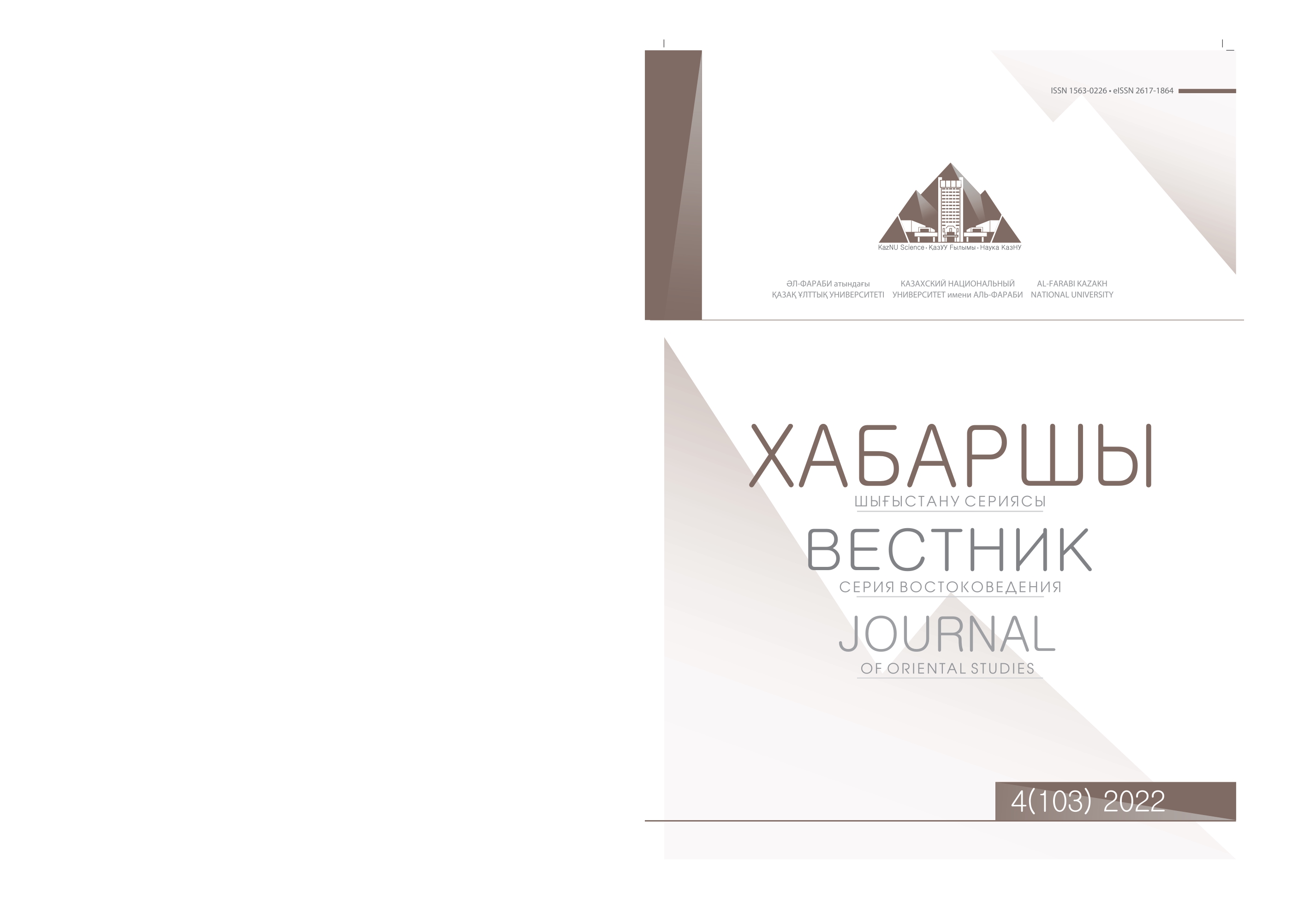Comparative analysis of ancient Chinese spiritual criticism and Russian subjective criticism of the Silver Age
DOI:
https://doi.org/10.26577/JOS.2022.v103.i4.010Abstract
Spiritual criticism in ancient China originated in the pre-Qin era and the period of the two Han dynasties. It was formed and further developed during the Northern and Southern Song, Ming, and Qing dynasties. Spiritual criticism is characterized by the elimination of external influences in the evaluation of literary works. The mind must be clear like a mirror, hence the name. This method of criticism not only existed for a long time and had great influence, but it still occupies a significant place in Chinese literary criticism. Subjective criticism of the Russian Silver Age was put forward by D. S. Merezhkovsky and enjoyed wide popularity among the Symbolists. It was characterized by the fact that it proceeded from the critic’s personal religious and philosophical thought and interpreted the classic writers and classical works in world and Russian literature as opposed to the then-dominant socio-historical criticism. Although this type of criticism did not last long, it achieved tremendous success, and its echoes are still heard. Although these two types of criticism originated in different cultures and nationalities, one of them spanned several thousand years, they have much in common regarding philosophical origins, ways of thinking, methods of criticism, and aesthetic goals. Both types of criticism focused on the dimension of the “soul”. Ancient Chinese spiritual criticism focused on spiritual understanding, and Russian subjective criticism of the Silver Age attached importance to subjective perception, so a comparative study of the two types of literary criticism will reveal many interesting phenomena. Key words: spiritual criticism, subjective criticism, evaluative criticism, symbolism.














